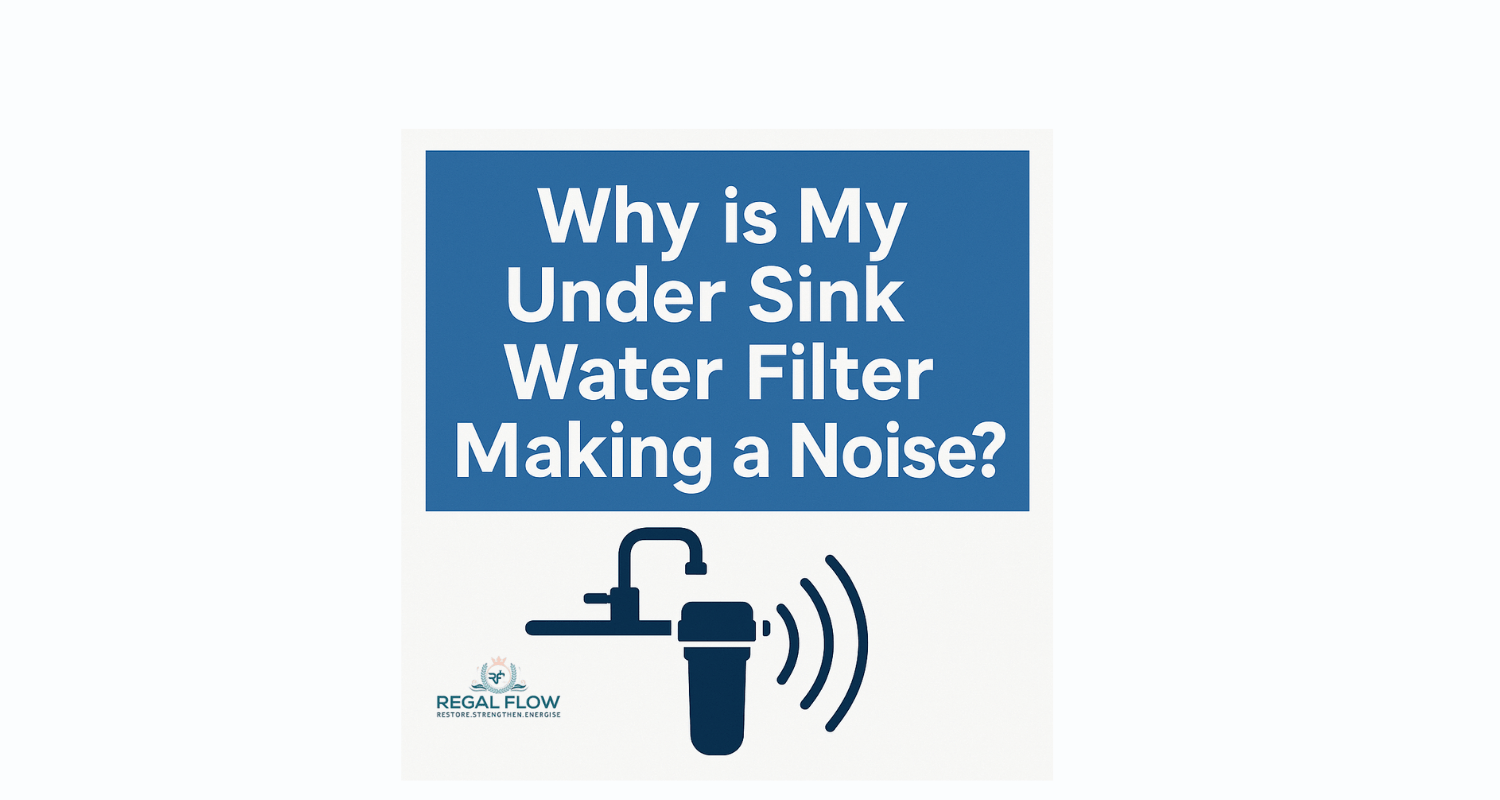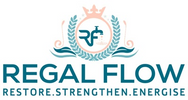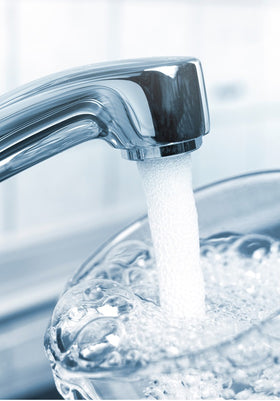
Why is My Under Sink Water Filter Making a Noise?
Is your under-sink water filter making a weird noise? Don’t worry, it’s probably not haunted! Most likely, it's just air bubbles, fluctuating water pressure, or loose parts. In Reverse Osmosis FAQs: Answers to Common Questions, we break down why this happens—whether you're using countertop dispensers or reverse osmosis systems and how to silence the mystery to restore peace in your kitchen.
Understanding Normal Sounds from an Under Sink Filter
Not every noise from your under-sink water filter should set off alarm bells. Some sounds are perfectly normal, and knowing the difference between the usual and the unusual can save you from unnecessary worry.
The Sound of Water Flowing During Filtration
You’ve probably heard it before—the gentle sound of water flowing through the filter. This is a perfectly natural noise and simply the sound of your water being filtered. If you’ve recently installed or replaced your filter, you’ll hear a steady hum or rush of water as it passes through the system, ensuring that your water is purified.
Occasional Gurgling After Faucet Use
If you notice the occasional gurgling after you use the faucet, don’t panic! This is usually caused by air trapped in the system. It’s quite common, especially after installing a new filter or completing maintenance. Thankfully, it’s typically a temporary noise and should disappear after a few uses.
Common Reasons for Unusual Noises in Under Sink Water Filters
If your filter is making noises that sound a bit out of the ordinary, it’s important to investigate further. Here are some common causes of those unsettling sounds.
Air in the System Causing Gurgling or Bubbling
One of the most frequent culprits of noise is air in the system. After you install a new filter or do any maintenance, air bubbles can get trapped inside. These bubbles can cause gurgling, bubbling, or even a slight “splashing” sound as they move through the pipes. Don’t worry—this is easy to fix with a bit of flushing.
Loose Fittings or Connections Vibrating
Loose fittings or improperly secured connections are another common cause of noise. If parts aren’t tightly screwed together, you might hear rattling or vibrations as water flows through. Over time, these noises can become more pronounced, but fortunately, a quick tightening usually does the trick.
Blocked or Restricted Filters Causing Strain
If your filter is clogged or not replaced regularly, it can create strain on the system. As the water struggles to pass through the filter, you might hear a humming or straining noise. It’s a sign that your filter is doing more work than it should and probably needs replacing.
Issues with the Pump (for RO Systems) Making Humming or Buzzing Sounds
For those with reverse osmosis (RO) systems, a malfunctioning pump could be the source of a humming or buzzing sound. The pump is a critical part of the RO system, and when it’s not working properly, it can create vibrations or a constant buzzing noise as it tries to maintain pressure. If you’re hearing this, it might be time to investigate further.
Water Hammer or Pressure Fluctuations in the Plumbing
Water hammer, a sudden jolt of pressure when water flow stops, is another common issue. This can lead to loud banging noises in the pipes and is often caused by pressure fluctuations. If you’re hearing a series of thumps or bangs, this could be a sign of water hammer, and it’s best to address it sooner rather than later.
Diagnosing the Source of the Noise
To solve the problem, it’s crucial to identify the source of the noise first. Here’s how you can figure out what’s causing your filter to sing.
Identifying When the Noise Occurs (During or After Use)
Is the noise happening when you’re using the faucet, or only after you’ve turned it off? If the noise occurs while water is flowing, it’s more likely to be related to air in the system or pressure issues. If it’s happening once the water stops, it could point to trapped air or water hammer.
Pinpointing the Location of the Sound
Next, try to pinpoint where the noise is coming from. Is it originating from the filter unit itself, the faucet, or somewhere in the pipes? Being specific about where you hear the sound can help narrow down the problem. For example, a vibrating sound from the filter suggests loose parts, while a noise near the faucet could indicate issues with the plumbing.
Describing the Type of Noise (Gurgling, Humming, Whirring, Clicking)
Take note of the type of noise. Gurgling typically indicates air in the system, humming or buzzing could mean a pump issue, and clicking or whirring noises may be related to water pressure. Describing the sound accurately will help you identify the root cause and determine how to fix it.
Troubleshooting and Fixing Noisy Under Sink Water Filters
Now that you’ve diagnosed the noise, here’s how to fix it. Most issues are easy to resolve with a bit of effort.
Bleeding Air from the Filter System
If air is trapped in your system, bleeding it out can usually fix the problem. Simply run the cold water faucet for a few minutes to allow any trapped air to escape. You should hear the gurgling stop as the system clears out.
Tightening Loose Fittings and Connections
Loose connections are an easy fix. Turn off the water, then check all fittings and parts to make sure everything is securely tightened. If you find anything loose, tighten it up, and that should stop any rattling or vibrating noises.
Replacing Clogged or Old Filters
A clogged or old filter could be causing strain on the system and creating noise. Replacing the filter is often the easiest solution. If you’re not sure when to replace it, check the manufacturer’s guidelines or set a reminder for regular changes.
Checking and Addressing Pump Issues (for RO)
For RO systems, if the pump is causing humming or buzzing sounds, check for any blockages or power issues. If the pump is malfunctioning, it may need replacing. Be sure to follow the manufacturer’s instructions for maintenance and troubleshooting.
Investigating Water Pressure and Potential Water Hammer
Check the water pressure in your home and ensure it’s within the recommended range. If the pressure is too high, consider installing a pressure regulator. For water hammer, adding air chambers or installing a water hammer arrestor can help reduce the banging noises in your pipes.
When to Consult a Plumber or Filter Technician
If you’ve tried troubleshooting and the noise is still there, it may be time to call in a professional.
If the Noise is Loud or Persistent
If the noise is particularly loud, persistent, or hasn’t improved after fixing common issues, it could indicate a more serious problem. Don’t hesitate to call a plumber or technician who can take a closer look and fix it properly.
If You Suspect a Plumbing Issue or Pump Malfunction
If you suspect a plumbing issue or a malfunctioning pump in your RO system, it’s better to call in an expert. They’ll have the tools and experience to diagnose and repair the problem without causing further damage.
Conclusion: Silencing Your Noisy Under Sink Water Filter
A noisy under-sink water filter doesn’t have to be a cause for alarm. With a bit of troubleshooting, most problems can be fixed quickly and easily. Whether it’s air in the system, loose fittings, or water pressure fluctuations, these simple fixes can restore peace to your kitchen. And if the noise persists, don’t hesitate to consult a professional for help.
More Reverse Osmosis info we think you'll love
Are Reverse Osmosis Filters Interchangeable?
Are Reverse Osmosis Filters Universal?
Are Reverse Osmosis Systems Safe?
Are Reverse Osmosis Systems Worth It?
Can Reverse Osmosis Water Cause Constipation?
Can Reverse Osmosis Water Cause Diarrhoea?
Can Reverse Osmosis Water Dehydrate You?
Is Reverse Osmosis Water Bad for your Health?
Why is Reverse Osmosis Water Good for You?
Why do Reverse Osmosis Systems Waste Water?
Why Does My RO System Keep Draining?



Leave a comment